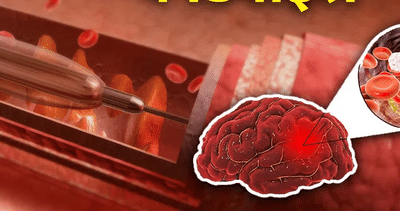In a groundbreaking achievement, Indian scientists have developed an advanced medical device capable of removing blood clots from the brain — a development that could significantly reduce deaths caused by strokes. The innovation, called the Supernova Stent Retriever, has been created by researchers at the Jawaharlal Institute of Postgraduate Medical Education and Research (JIPMER), Puducherry. After successful clinical trials, the device has received approval from the Drug Controller General of India (DCGI), marking a major milestone in Indian medical science.
According to Dr. Sunil Narayan, Professor and Head of the Department of Neurology at JIPMER, the device can be used to remove clots even seven to eight hours after a stroke, a time window that offers hope for many patients who previously had limited treatment options. The device works by being inserted through a catheter into the brain’s veins, where it captures and extracts the clot, helping restore normal blood flow. This innovation could greatly improve recovery rates and reduce stroke-related fatalities.
Another remarkable aspect of the Supernova Stent Retriever is its affordability. Dr. Narayan noted that the device is expected to cost 50–70% less than imported alternatives, making advanced stroke treatment more accessible to patients in India. Currently, hospitals rely heavily on foreign-made devices, which are often prohibitively expensive. Once mass-produced domestically, the Supernova device could help India become self-reliant in stroke treatment while ensuring timely and effective care.
Medical experts highlight that time is critical during a stroke — the sooner a clot is removed, the better the chances of recovery. While clot-dissolving drugs work effectively only within three to four hours of a stroke, this new device extends the treatment window, offering a lifesaving advantage.
The Alarming Stroke Reality in India
-
Every four minutes, one person in India suffers a stroke.
-
Nearly 60% of stroke patients fail to reach the hospital on time.
-
Only 5% receive timely clot-removal treatment.
-
Lack of awareness about stroke symptoms remains a major concern.
You may also like

Bihar elections: Election commission shake-up in Patna after Dularchand's murder

Bihar polls: Lalu Yadav's fortress of Raghopur wants more than just legacy

Huntingdon train stabbings LIVE: Multiple train passengers attacked, 2 arrested

Liverpool player ratings as three shine in 2-0 win over Aston Villa

Polish criminal allowed back in the UK as he avoids sentence for rape







